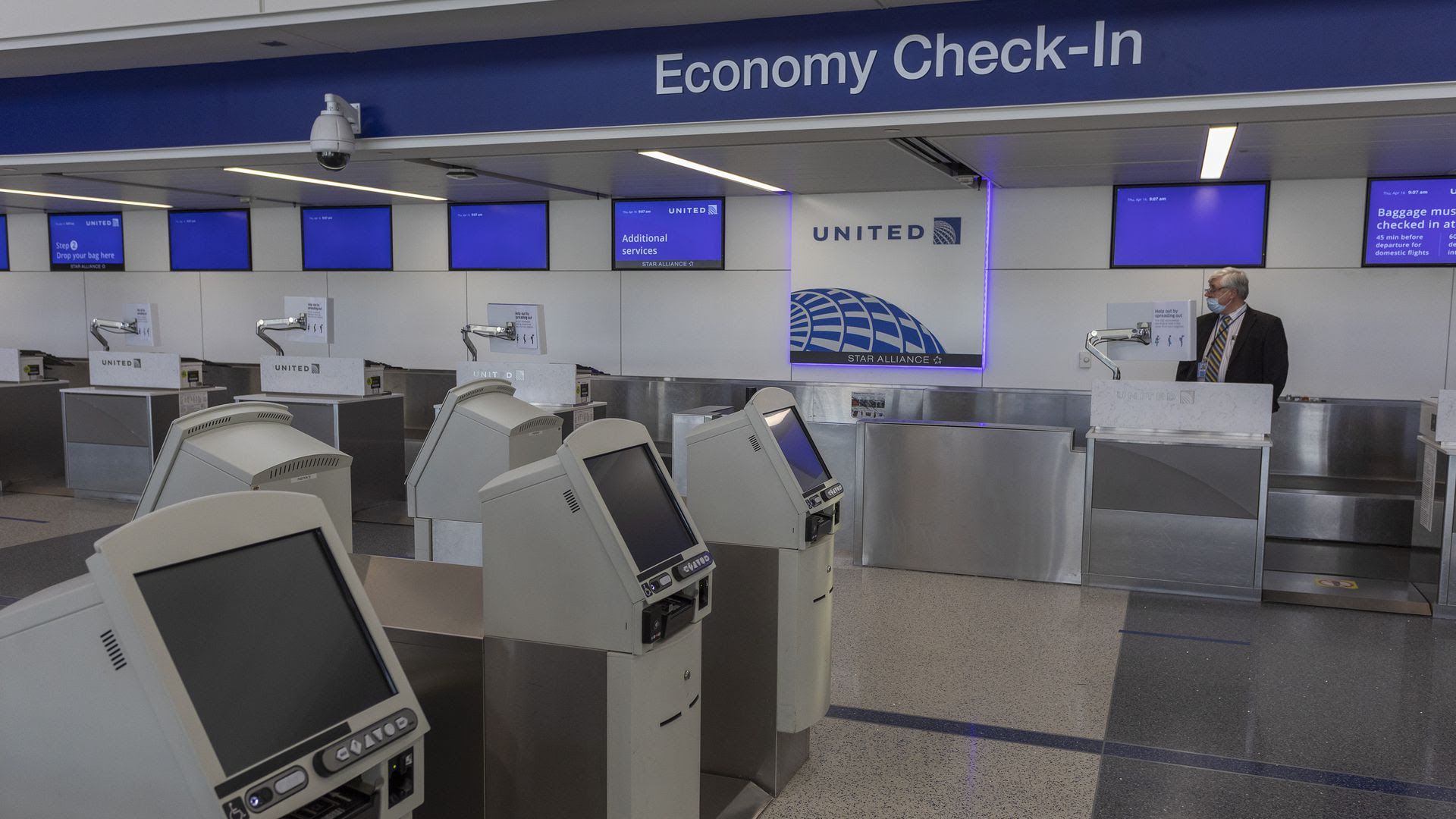Airlines face a long, slow climb despite federal coronavirus rescue
Add Axios as your preferred source to
see more of our stories on Google.

Photo: David McNew/Getty Images
Congress' $50 billion rescue package for U.S. airlines will help keep the carriers alive — and their employees on the payroll amid the coronavirus crisis — until the end of September. After that, the outlook is grim.
What's happening: The airline industry is reeling, with air travel down as much as 95% since the coronavirus stopped Americans in their places in mid-March. Even as a hopeful President Trump begins to prepare for the reopening of the U.S. economy, it will likely be years before airlines bounce back to pre-crisis levels.
Look at what happened after 9/11, notes the Wall Street Journal.
- U.S. airlines' domestic revenues didn't fully recover until 2004, three years after the terrorist attacks.
- International flights, hurt by the SARS epidemic in 2003, lagged for almost another year.
Now, economists say we're in for a deep recession, far worse than 9/11 or 2008-2009.
Driving the news: Earlier this week 10 U.S. airlines agreed to terms with the U.S. Treasury to distribute $25 billion in payroll assistance as part of Congress' $2.2 trillion federal stimulus package.
- Another $25 billion in government loans is available, and some, including American Airlines, intend to apply.
- Taxpayers could wind up with small stakes in each of the airlines if the Treasury Department exercises equity warrants under terms of the deal.
The government lifeline comes with other strings, too: airlines must maintain service to all of the markets they served before the crisis, even though there are hardly any passengers.
United offered a sobering assessment this week in a letter to employees from CEO Oscar Munoz and President J. Scott Kirby.
- Brace for job cuts starting in October, they warned employees.
- United, which estimates it is losing $100 million a day, has cut 90% of its planned flights for May, and expects similar cuts in June.
What's next: When demand does start to improve, it likely will not bounce back quickly, they said.
- Lingering health concerns mean people could still be afraid to fly.
- Not all states and cities are expected to re-open at the same time, and some international travel restrictions will likely remain in place.
- Large conferences and events will likely remain on hold for a while.
